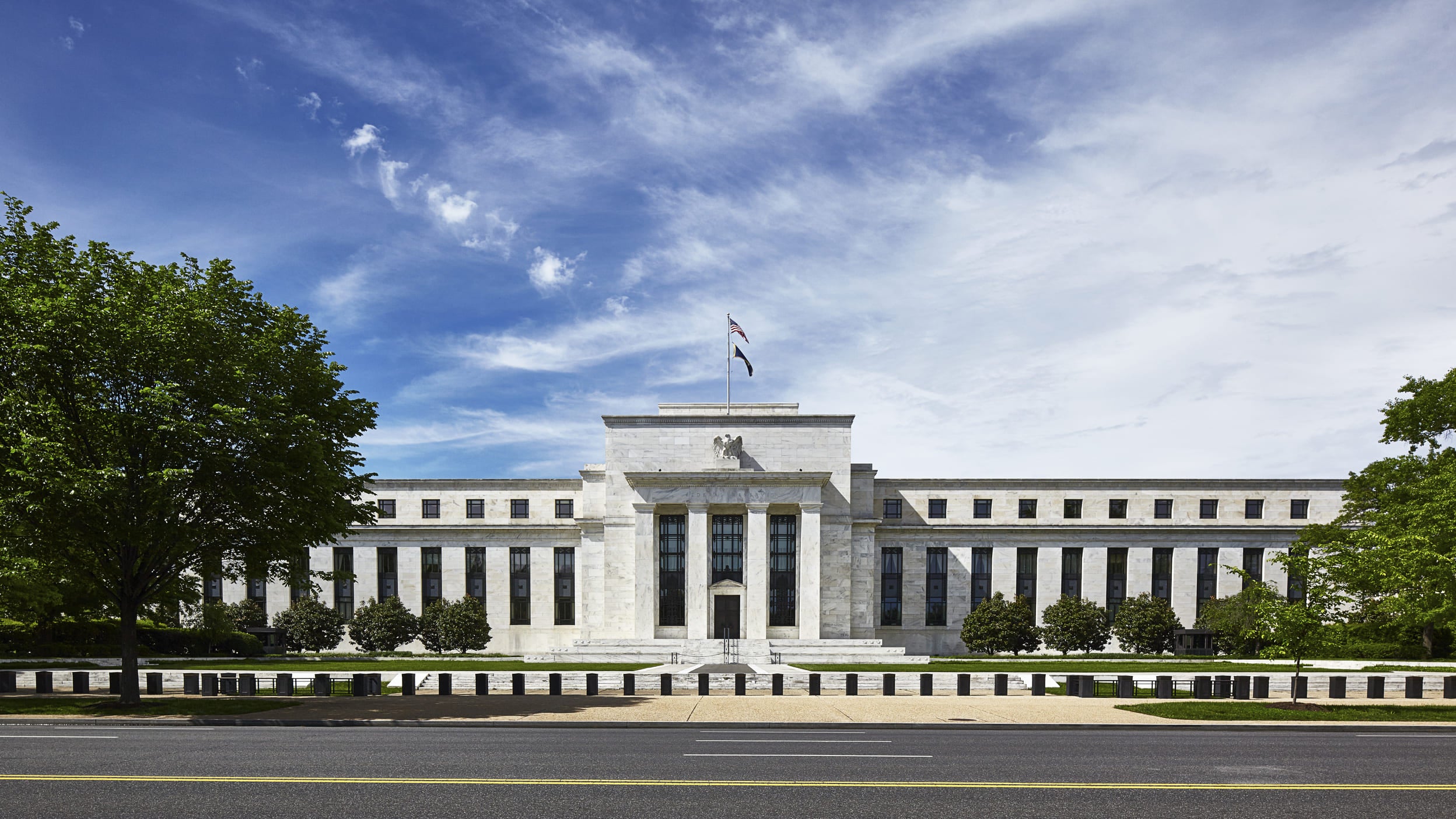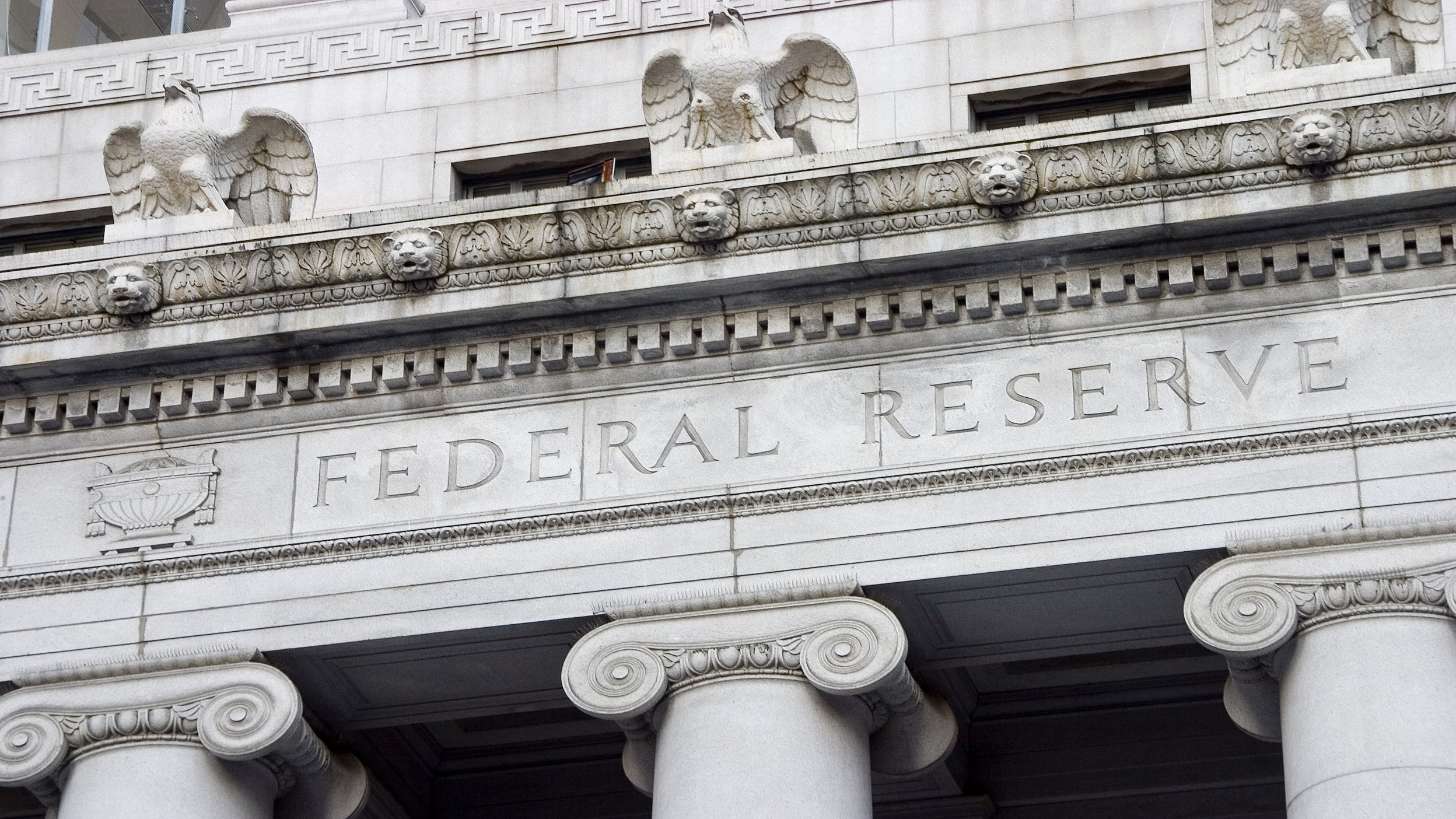
What the Fed’s rate hike comments may mean for the economic recovery and investors
The Fed’s recent rate hike comments and the July jobs report concerned some market watchers, but Kristina Hooper believes these are positive developments.

It’s “back to school” season in many parts of the world, which always brings back warm memories for me. When I was in high school, I really enjoyed some of the English classes I took. In addition to reading many of the great classics, I learned about literary devices. One of my favorites has always been foreshadowing: “a literary device used to give an indication or hint of what is to come later in the story. Foreshadowing is useful for creating suspense, a feeling of unease, a sense of curiosity, or a mark that things may not be as they seem.”1
Foreshadowing can be simple — think of the tense music that foreshadows a shark attack in “Jaws.” It can be direct — for example, when the witches predicted the ascension of Macbeth as king in Shakespeare’s play. It can be indirect — a crow flying across the sky to forewarn viewers about a death. And don’t forget, foreshadowing can sometimes be inaccurate — there can be “red herrings” that seem to suggest one thing will happen, but in fact it does not.
Foreshadowing isn’t limited to books and movies. Last week saw a lot of Federal Reserve (Fed) officials foreshadowing about tapering. Last Monday, Boston Fed President Eric Rosengren made his views on asset purchases clear: “If you continue to purchase assets, the reaction primarily is in pricing, not so much in employment. I don’t think asset purchases are having the desired impact on really promoting employment.”2 Rosengren suggested that tapering will begin soon: “I would expect if we continue to have (jobs) reports like we’ve had over the last two, with very substantial payroll employment gains, that by the September meeting, we would, in my view, meet the substantial further progress criteria, and that would imply starting to taper sometime this fall.”2
In a speech last week, Kansas City Fed President Esther George also foreshadowed tapering soon. “Today’s tight economy … certainly does not call for a tight monetary policy, but it does signal that the time has come to dial back the settings.”3 She was confident in her assessment: “Now with the recovery underway, a transition from extraordinary monetary policy accommodation to more neutral setting MUST follow.”3
This is just a sampling of some recent comments from Fed officials. The previous week, Vice Chair Richard Clarida shared that if his “base case” outlook for the economy is realized, then he would support a tapering announcement later this year.
The beauty of foreshadowing when you are a Fed official is that you play an important role in the event coming to fruition. Not only can you vote on it, but you can try to persuade your colleagues on the Federal Open Market Committee (FOMC) to vote the same way. Last week, Dallas Fed President Robert Kaplan explained his perspective: “It would be my view that if the economy unfolds between now and our September meeting ... if it unfolds the way I expect, I would be in favor of announcing a plan at the September meeting and beginning tapering in October.”4 He echoed what we have heard from other members of the FOMC: “The reason I’m saying we ought to begin the tapering soon is I think these purchases are very well equipped to stimulate demand. But we don’t have a demand problem in the economy. My thought is I’d rather take the foot off the accelerator soon and reduce the RPMs. What I don’t want to do is keeping running at this speed for too long and then we’re going to have to take more aggressive action down the road.”4
I believe tapering later this year is a “fait accompli.” However, I don’t believe it will result in anything like the “taper tantrum” we experienced in 2013. That’s because the Fed has learned from that experience how to better communicate policy normalization before it begins.
Looking back on 2013, FOMC minutes show that the Fed was talking about tapering since its January 2013 meeting. At its April/May meeting, some FOMC members indicated interest in starting tapering at the June meeting — but nothing was publicly communicated at that time. Therefore, Fed Chair Ben Bernanke’s tapering comments on May 22, 2013, in response to a question from a member of Congress, was like dropping a bombshell — no real foreshadowing had occurred in advance. Needless to say, playwright Anton Chekhov, who counseled that “if there is a rifle onstage in the first act, then it absolutely must go off in the second or third act,”5 would have been as disappointed as markets were in Mr. Bernanke’s lack of foreshadowing.
Fast forward to today. This time could not be more different. The Fed has been overly transparent about tapering, starting earlier this year when it revealed that it hadn’t even started to talk about talking about tapering. This year we have been treated to a buffet of “Fedspeak” around tapering as thinking and deliberation evolved, so much so that many may have “taper talk fatigue” — eager to rip the Band-Aid off and get started just so they don’t have to hear any more about it. I also appreciate the efforts of Fed officials to bifurcate tapering from rate hikes, treating the two policy tools as very separate. I believe that should also help to calm markets.
It feels like a fall taper is a fait accompli with an announcement by September. We might get some volatility — even a short-term sell-off if combined with more negative news about COVID-19 and its impact on global growth. But thanks to heavy foreshadowing by Fed officials, I believe markets will be well-prepared for such a decision, and that we should avoid anything like the 2013 taper tantrum.

The Fed’s recent rate hike comments and the July jobs report concerned some market watchers, but Kristina Hooper believes these are positive developments.

Surprise regulations on for-profit tutors led to a broad sell-off in Chinese equities — and attractive valuations for Chinese tech stocks, says Kristina Hooper.
1 Source: MasterClass, “Writing 101: Foreshadowing Definition, Examples of Foreshadowing, and How to Use Foreshadowing in Your Writing”
2 Source: CNBC, “Fed should begin slowing stimulus efforts by fall, Boston Fed’s Rosengren says,” Aug. 9, 2021
3 Source: Kansas City Fed, transcript of remarks by Esther George, Aug. 11, 2021
4 Source: CNBC, “Fed should announce bond taper in September, begin it in October, says Dallas Fed President Kaplan,” Aug. 11, 2021
5 Source: Now Novel, “Chekhov’s Gun: What it is and how to use it like a pro”
The value of investments and any income will fluctuate (this may partly be the result of exchange rate fluctuations) and investors may not get back the full amount invested.
The opinions referenced above are those of the author as of Aug. 16, 2021.
These comments should not be construed as recommendations, but as an illustration of broader themes. Forward-looking statements are not guarantees of future results. They involve risks, uncertainties and assumptions; there can be no assurance that actual results will not differ materially from expectations.
This document is marketing material and is not intended as a recommendation to invest in any particular asset class, security or strategy. Regulatory requirements that require impartiality of investment/investment strategy recommendations are therefore not applicable nor are any prohibitions to trade before publication. The information provided is for illustrative purposes only, it should not be relied upon as recommendations to buy or sell securities.
Where individuals or the business have expressed opinions, they are based on current market conditions, they may differ from those of other investment professionals, they are subject to change without notice and are not to be construed as investment advice.
Tapering is the gradual winding down of central bank activities that aimed to reverse poor economic conditions.
A “fait accompli” is a French phrase describing an accomplished fact that presumably cannot be changed.